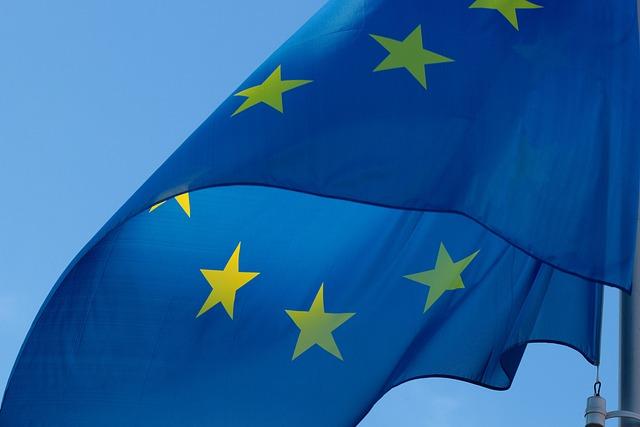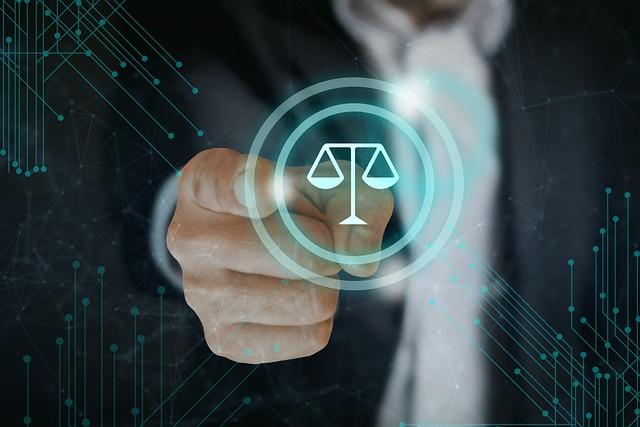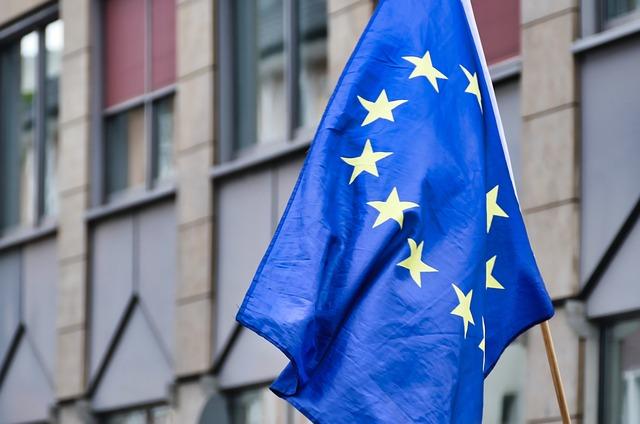In a landscape increasingly dominated by artificial intelligence, European Union lawmakers are raising alarms over proposals that could dilute existing AI regulations. As the technology continues to evolve at a rapid pace, concerns have mounted regarding the potential risks and ethical implications associated with its deployment. In response, key figures within the EU framework are advocating for the preservation of stringent guidelines designed to ensure public safety, privacy, and transparency.This article explores the current regulatory landscape in the EU, the perspectives of lawmakers on the dangers of weakening these regulations, and the broader implications for businesses and consumers in an AI-driven world.
EU Lawmakers Express Concerns Over Proposed Easing of AI Regulations
In a recent session, European lawmakers voiced strong opposition to proposed changes that would relax existing regulations on artificial intelligence. The discussion highlighted concerns about potential risks associated with unchecked AI developments, including the impact on privacy, security, and ethical standards. Many representatives argued that the current framework is essential for safeguarding citizens against potential abuses and ensuring that AI technologies remain beneficial to society.
key concerns raised during the deliberations included:
- Lack of Accountability: The proposed easing could undermine mechanisms that hold AI developers responsible for misuse or harm.
- Data Protection Risks: There’s fear that a relaxed approach may compromise individuals’ data rights and lead to greater surveillance.
- Innovation vs. Safety: while some argue that regulations stifle innovation, many lawmakers counter that a robust framework fosters responsible development.
| Concern | Implication |
|---|---|
| Lack of Oversight | Risk of biased or harmful AI applications |
| Ethical Standards | Dilution of guidelines ensuring fair AI use |
| Public Trust | Potential erosion of citizens’ confidence in technology |

Implications of Weakening AI Regulations for Consumer Protection
The potential weakening of AI regulations raises significant concerns regarding consumer protection across various sectors. As AI continues to permeate everyday life—from chatbots that handle customer service to algorithms that dictate loan approvals—the absence of robust regulatory frameworks may expose users to increased risks. Issues of accountability, transparency, and fairness become paramount, especially when decisions made by AI systems can profoundly impact individuals’ lives. Without stringent oversight, consumers might find themselves victims of discrimination, misinformation, or even breaches of privacy.
Additionally, the erosion of regulatory standards could create an uneven playing field where tech giants dominate, stifling small businesses and innovation. The implications include potential monopolistic behaviors and a lack of recourse for consumers facing AI-related grievances.It is essential to mitigate these risks by fostering an ecosystem where ethical AI development is prioritized.Key considerations for safeguarding consumer interests include:
- Enhanced transparency in AI algorithms
- Provisions for accountability when AI fails
- Consumer education on AI’s capabilities and limitations
- Clear guidelines for data privacy
| Risk | Potential Impact | Consumer protection Measure |
|---|---|---|
| Discrimination | Unjust outcomes in critical services | Mandatory bias audits |
| Misinformation | Informed decision-making hindered | fact-checking protocols |
| Privacy breaches | Unauthorized data access | Strong data protection laws |

balancing Innovation and Safety: The Need for robust AI Oversight
The rapid evolution of artificial intelligence brings remarkable opportunities for innovation, yet it also poses significant risks that can’t be overlooked. As EU lawmakers emphasize the importance of stringent regulations, the challenge lies in fostering a landscape where creativity thrives alongside guaranteed safety. Strong oversight mechanisms must be established to prevent potential misuse of AI technologies that could lead to harmful outcomes for society. this requires a robust framework that not only promotes innovation but also mandates accountability for AI developers and organizations alike.
In constructing a balanced approach, legislators should consider the following key elements:
- Transparency: Ensuring AI algorithms and their decision-making processes are comprehensible and accessible.
- Accountability: Clear guidelines should be in place to hold developers and users responsible for the implications of AI deployments.
- Ethical Standards: AI systems need to be developed with ethical considerations that prioritize human rights and dignity.
- Public Engagement: Involving stakeholders in discussions about AI technologies to promote understanding and trust.
To illustrate the potential impacts of weak versus strong regulatory frameworks, the following table highlights key distinctions:
| Aspect | weak Regulation | Strong Regulation |
|---|---|---|
| Innovation Pace | Fast but risky | Measured with safety nets |
| Accountability | Low | High |
| Public Trust | Fragile | Strengthened |

Recommendations from Experts on Strengthening AI governance
Experts emphasize the need for a robust framework in AI governance to mitigate risks while harnessing AI’s potential benefits. They suggest the implementation of complete regulatory guidelines that include measurable standards for safety, transparency, and accountability. Key recommendations include:
- Establishing clear ethical guidelines for AI development and deployment.
- Implementing mandatory impact assessments to evaluate societal and economic implications.
- Encouraging public stakeholder engagement in the policy-making process.
- Creating a centralized regulatory body dedicated to overseeing AI technologies.
Another critical facet highlighted by industry leaders is the importance of international collaboration.As AI transcends borders, experts call for a unified approach to regulation, advocating for treaties that ensure global compliance with AI ethical standards. this collaboration may involve:
- Regular international summits to address emerging AI challenges.
- Sharing best practices through a global AI regulatory network.
- Harmonizing legislation across regions to prevent regulatory fragmentation.
- Developing mutual accountability frameworks for AI service providers.

The Role of EU Institutions in Upholding AI Regulatory Standards
The landscape of artificial intelligence (AI) is evolving rapidly, prompting European Union institutions to take a proactive stance in regulating its development and deployment. Central to this effort are various bodies, notably the European Commission, the European Parliament, and the European Council, which collaborate to establish a comprehensive regulatory framework. Their primary goals include ensuring safety, promoting innovation, and protecting basic rights. The institutions serve as custodians of the EU’s values, underscoring the importance of transparency, accountability, and ethical considerations in AI technologies.With their regulatory initiatives, they aim to set international benchmarks that not only address the unique challenges posed by AI but also fortify the EU’s position as a global leader in responsible technological advancement.
despite ongoing discussions about potential regulatory looseness, EU lawmakers remain steadfast in their commitment to maintaining rigorous standards. They are deeply concerned that diluting existing regulations could lead to increased risks associated with AI systems,including issues of bias,discrimination,and privacy violations. By engaging in stakeholder consultations,the institutions emphasize the need for cohesive legal frameworks that reflect both innovation and precaution. Additionally, they are exploring policy mechanisms that facilitate cooperation among member states, ensuring a harmonized approach to AI regulation across the union. This proactive engagement aims to prevent a fragmented regulatory landscape that could jeopardize the integrity of technological advancements in AI.

Future Outlook: Navigating Compliance in a Rapidly Evolving AI Landscape
The landscape of artificial intelligence is evolving at an unprecedented pace, which poses both opportunities and challenges for businesses. As EU lawmakers continue to advocate for stringent AI regulations, organizations must remain vigilant in adapting their compliance strategies. This involves not only understanding the current regulatory framework but also anticipating future changes that could impact operational practices. Companies will need to invest in robust compliance measures which could include:
- Continuous education and training for employees on AI ethics and regulations.
- Regular audits to ensure adherence to guidelines and industry standards.
- Collaboration with legal experts to navigate complex compliance landscapes.
- Implementation of technologies that facilitate compliance monitoring and reporting.
As regulatory bodies refine their approach toward AI, organizations must adopt a proactive stance rather than a reactive one. Companies that build a culture of compliance will not only mitigate risks but also enhance their reputation in the eyes of consumers and stakeholders. Maintaining transparency with clients about AI practices is key to fostering trust, as is aligning with ethical principles that prioritize user safety and privacy.the need for clear accountability mechanisms in AI development and deployment remains urgent, and businesses are encouraged to:
- Engage with regulators to help shape reasonable regulations.
- Invest in AI technologies that are auditable and explainable.
- Regularly review and update compliance strategies in response to regulatory shifts.
| Compliance Strategy | Description |
|---|---|
| Education & Training | Ongoing learning for staff on AI regulations. |
| Regular Audits | Periodic checks for compliance adherence. |
| Legal Consultation | partnering with experts for regulatory navigation. |
| Technology Investment | Tools to monitor and enhance compliance. |

To conclude
the recent warning from EU lawmakers highlights the critical importance of maintaining robust regulations for artificial intelligence as the technology continues to evolve rapidly. While innovation is essential for growth and competitiveness, the potential risks posed by unchecked AI development cannot be overlooked. Policymakers are urging a balanced approach that prioritizes both technological advancement and the safeguarding of ethical standards, privacy, and public safety. As discussions in Brussels progress, the outcome will be pivotal in shaping the future landscape of AI governance not only within Europe but also globally. Stakeholders from all sectors must closely monitor these developments, as the implications of regulatory decisions will undoubtedly reverberate far beyond the EU’s borders.













